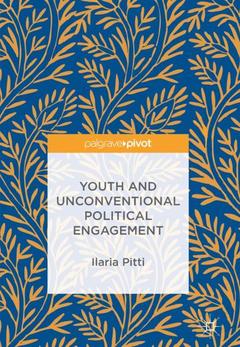Description
Youth and Unconventional Political Engagement, 1st ed. 2018
Author: Pitti Ilaria
Language: English
Subjects for Youth and Unconventional Political Engagement:
Keywords
protest; volunteering; squatting; social movements; democracy; participation; Italy; Sweden; Europe
Approximative price 52.74 €
In Print (Delivery period: 15 days).
Add to cartSupport: Print on demand
Description
/li>Contents
/li>Biography
/li>Comment
/li>
This book analyses the relationship between youth and participation, looking specifically at those repertories of involvement that are commonly clustered under the concept of ?unconventional political participation?.The authorfocuses on the connections between youth practices of participation and youth conditions in contemporary society. Drawing from the analysis of three ethnographic case studies conducted on experiences of youth participation in Italy and Sweden, the circumstances and the reasons leading young people to express their political ideas through forms of engagement located outside the realm of ?formal politics? are explored. The book seeks to bring back the specificities of contemporary youth at the centre of the analysis of youth practices of participation, highlighting their often overlooked socio-historical and generational ?situatedness?.
Youth and Unconventional Political Engagement will be of interest students and scholars across a range of disciplines, including youth studies, political science, and sociology.




